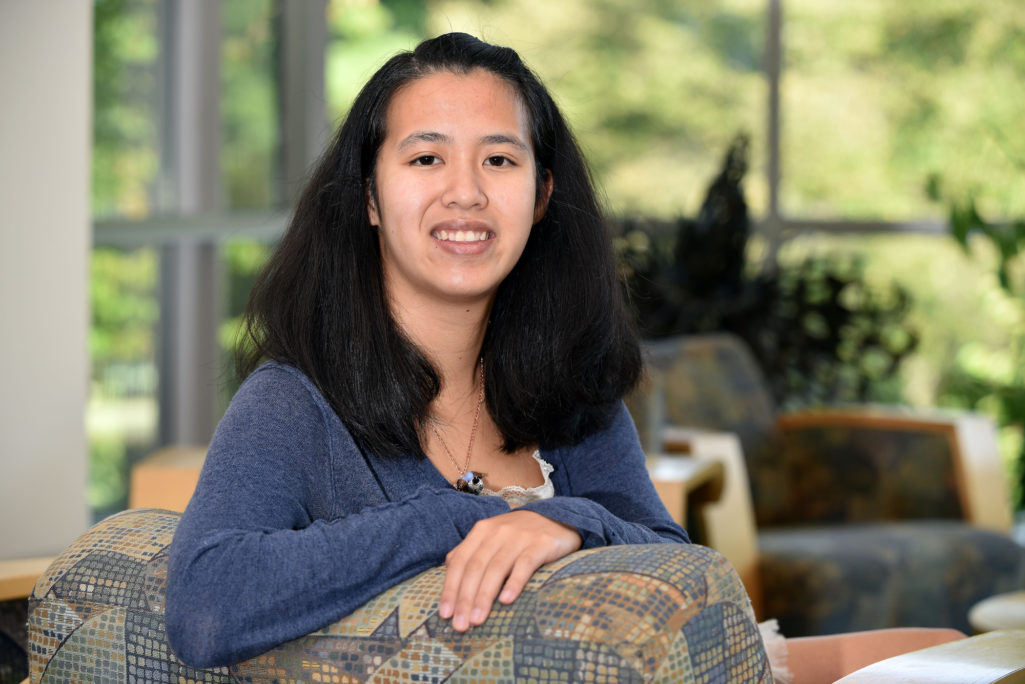Designing a new generation of satellites
Grace Genszler ’18
New frontiers. Tethered satellite systems are a piece of space technology that can tie into alternative energy sources for power generation and propulsion. Rather than using chemical propellants, tethered satellites can rely on electrified power storage and propulsion. As the aerospace industry continues to grow, I think it’s important to look into economically and environmentally efficient power sources.
Strategic choice. Grad school has always been part of my education plans, so I looked to see what research professors were doing at some of the schools I was interested in applying to. Eventually, I came across a spaceflight dynamics lab doing work that involved orbital mechanics, differential equations, and systems engineering, all things I encountered in classes at Wheaton and Dartmouth and really enjoyed.
Cracking the code. This work has helped me figure out what fields of research I’m interested in pursuing. I’ve learned that I want to do more with computational research at the graduate level. It has also motivated me to learn C/C++ for fun, and I hope to add Java [programming] to my repertoire at a later time.
Next steps. This summer I will be working as a summer research assistant in Montreal at McGill University and begin my Fulbright application to continue my honors thesis research there as a graduate student. Next year I will be returning to Dartmouth to complete the dual degree program and earn my Bachelors of Engineering.
Grace Genszler ’18 is a physics major who is participating in the college’s dual-degree program in engineering at Dartmouth College. A native of Ashland Wisconsin, she plans to pursue a Ph.D. in astronautical engineering and work on human spaceflight missions as an engineer and policy consultant.

